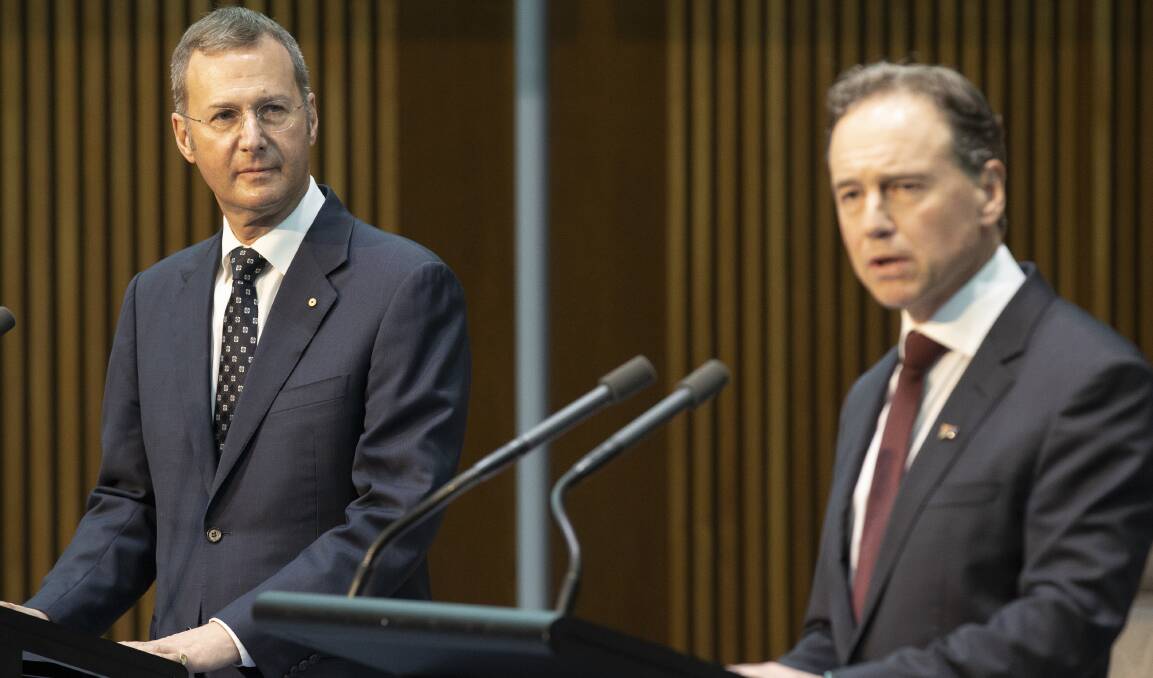
Australia is building towards about 10,000 ventilators for intensive care in the coronavirus crisis, a significant boost on the standing capacity in intensive care units around the country of about 2300.
Subscribe now for unlimited access.
or signup to continue reading
The Australia and New Zealand Intensive Care Society surveyed capacity across the country on March 7, when the nation's 191 intensive care units had 2300 intensive care beds with ventilators, president Anthony Holley said.
Hospitals had the capacity to boost numbers by about 500 very quickly. And they could ramp up to about 5000 by harnessing ventilators used in other areas of hospitals, including operating theatres, and by setting up intensive care in coronary care spaces, post-operative areas, and unfunded or decommissioned areas, and would require staff and other equipment.
"If we surge beyond 100 per cent it could be challenging at the current time," Dr Holley said. "But there are an enormous number of strategies to get more ventilators and we as a society feel confident that the government is doing absolutely everything it can to get those ventilators."
Health Minister Greg Hunt said Chief Scientist Alan Finkel was working to source new Australian-made ventilators, which Mr Hunt said could add 5000 more "invasive and non-invasive respiratory and ventilator units".
READ MORE:
Parliament was told this week that an order had been with Melbourne firm ResMed for 1000 invasive ventilators, and four firms had stepped in to help with producing "non-invasive" ventilators - ResMed, GE, Philips and Medtronic.
Invasive ventilation is where patients are intubated, with the machine breathing for them. In non-invasive ventilation, breathing is boosted using a mask without tubes.
Dr Holley said the society did not recommend non-invasive ventilation, but there were non-invasive machines that could be repurposed. Some of the ventilators on order were "not necessarily top of the range ventilators but devices that will do the job".
Modelling suggested numbers should be sufficient, but it was crucial to blunt the infection peak, he said.
"I don't think we should be complacent and I don't think we are. We have advised the government that we have surge capacity of 5000 beds plus, and we've got a small deficit of ventilators at the moment," he said.
"It's about decreasing the requirement for critical care and taking all of the responsible measures to prevent the infection spreading at a rate that prompts a surge that potentially swamps the system."
Australian Medical Association vice president Dr Chris Zappala said COVID-19 patients who needed ventilation typically spent about two weeks on the machine.
Asked whether the number of ventilators in hospitals and on order were likely to be sufficient, Dr Zappala said, "The honest answer is that we jolly well hope that that's enough because if it's not enough then clearly we have had a significant burden of critically ill people who need assistance for their breathing."
But he said the numbers were an educated guess.
"We're trying to predict as best as we can with imperfect information what our needs might be if we have a significant proportion of patients affected and some of those need assisted breathing," he said.
"No one really knows. We're just trying to extrapolate from experience overseas and come up with a number."
A ResMed spokesman said the firm was looking to double or triple the output of ventilators as quickly as possible, and scale up ventilation mask production more than tenfold.
Mr Hunt said another 63,000 test kits had arrived in Australia on Tuesday, adding to the 97,000 last week. About 37,000 more were on the way.
In addition, Australia had ordered 1.5 million "point of care tests", he said. Also known as "fingerprint tests", they would allow more testing of people in GP practices. A departmental spokesperson said fingerprint tests allowed GPs to detect whether someone had been exposed by checking for antibodies in the blood. They were most useful at least five to seven days after infection.
- For information on COVID-19, please go to the ACT Health website or the federal Health Department's website.
- You can also call the Coronavirus Health Information Line on 1800 020 080
- If you have serious symptoms, such as difficulty breathing, call Triple Zero (000)
We have removed our paywall from our stories about the coronavirus. This is a rapidly changing situation and we want to make sure our readers are as informed as possible. If you're looking to stay up to date on COVID-19, you can also sign up for our twice-daily digest here. If you would like to support our journalists you can subscribe here.


